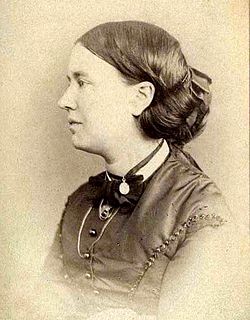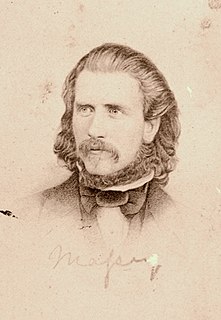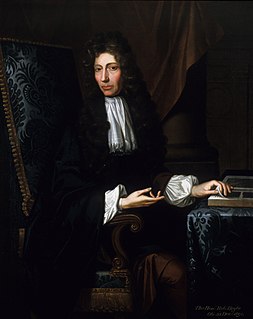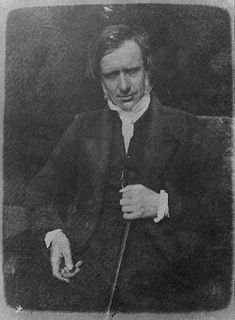A Quote by Paul Gauguin
Oh mysterious world of all light, thou hast made a light shine within me, and I have grown in admiration of thy antique beauty, which is the immemorial youth of nature.
Quote Topics
Related Quotes
What is thy thought? There is no miracle?
There is a great one, which thou hast not read,
And never shalt escape. Thyself, O man,
Thou art the miracle. Ay, thou thyself,
Being in the world and of the world, thyself,
Hast breathed in breath from Him that made the world.
Thou art thy Father's copy of Himself,--
Thou art thy Father's miracle.
Late have I loved Thee, O Lord; and behold, Thou wast within and I without, and there I sought Thee. Thou was with me when I was not with Thee. Thou didst call, and cry, and burst my deafness. Thou didst gleam, and glow, and dispell my blindness. Thou didst touch me, and I burned for Thy peace. For Thyself Thou hast made us, and restless our hearts until in Thee they find their ease. Late have I loved Thee, Thou Beauty ever old and ever new. Thou hast burst my bonds asunder; unto Thee will I offer up an offering of praise.
As there is no worldly gain without some loss, so there is no worldly loss without some gain; if thou hast lost thy wealth, thou hast lost some trouble with it; if thou art degraded from thy honor, thou art likewise freed from the stroke of envy; if sickness hath blurred thy beauty, it hath delivered thee from pride. Set the allowance against the loss, and thou shalt find no loss great; he loses little or nothing, that reserves himself.
Genius! thou gift of Heav'n! thou Light divine!
Amid what dangers art thou doom'd to shine!
Oft will the body's weakness check thy force,
Oft damp thy Vigour, and impede thy course;
And trembling nerves compel thee to restrain
Thy noble efforts, to contend with pain;
Or Want (sad guest!) will in thy presence come,
And breathe around her melancholy gloom:
To Life's low cares will thy proud thought confine,
And make her sufferings, her impatience, thine.
Compassionate Saviour! We welcome Thee to our world, We welcome Thee to our hearts. We bless Thee for the Divine goodness Thou hast brought from heaven; for the souls Thou hast warmed with love to man, and lifted up in love to God; for the efforts of divine philanthropy which Thou hast inspired; and for that hope of a pure celestial life, through which Thy disciples triumph over death.
And when with excellent Microscopes I discern in otherwise invisible Objects the Inimitable Subtlety of Nature's Curious Workmanship; And when, in a word, by the help of Anatomicall Knives, and the light of Chymicall Furnaces, I study the Book of Nature, and consult the Glosses of Aristotle, Epicurus, Paracelsus, Harvey, Helmont, and other learn'd Expositors of that instructive Volumne; I find my self oftentimes reduc'd to exclaim with the Psalmist, How manifold are thy works, O Lord? In wisdom hast thou made them all.
If with love thy heart has burned; If thy love is unreturned; Hide thy grief within thy breast, Though it tear thee unexpressed; For when love has once departed From the eyes of the false-hearted, And one by one has torn off quite The bandages of purple light; Though thou wert the loveliest Form the soul had ever dressed, Thou shalt seem, in each reply, A vixen to his altered eye; Thy softest pleadings seem too bold, Thy praying lute will seem to scold; Though thou kept the straightest road, Yet thou errest far and broad.
Sin! Sin! Thou art a hateful and horrible thing, that abominable thing which God hates. And what wonder? Thou hast insulted His holy majesty; thou hast bereaved Him of beloved children; thou hast crucified the Son of His infinite love; thou hast vexed His gracious Spirit; thou hast defied His power; thou hast despised His grace; and in the body and blood of Jesus, as if that were a common thing, thou hast trodden under foot His matchless mercy. Surely, brethren, the wonder of wonders is, that sin is not that abominable thing which we also hate.








































